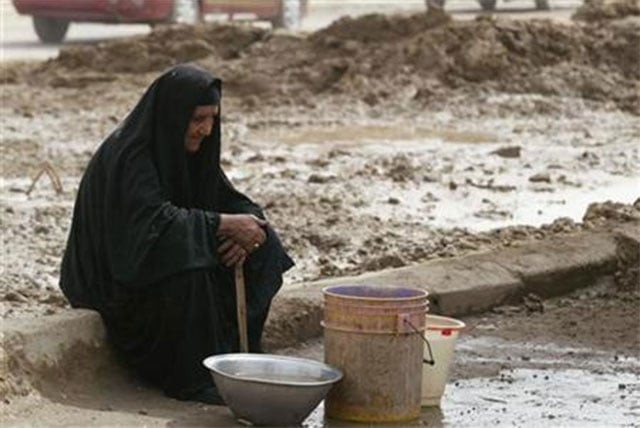Experts call for treatment of industrial waste, prudent use of water
Speakers at WWF-Pakistan briefing claim people are not getting safe drinking water

North Sindh Urban Services Corporation's filtration plant choked creating problems for residents. PHOTO: FILE
This was emphasised by speakers during a media briefing session conducted by the Worldwild Fund for Nature - Pakistan (WWF-Pakistan) regarding a project titled 'International Labour and Environmental Standards (ILES), Application in Pakistan's Small and Medium Enterprises (SMEs)'.
The six-year project, funded by the European Union, is being jointly implemented by the International Labour Organisation (ILO) in Karachi, Lahore, Sialkot and Faisalabad. The project primarily focuses on reducing the use of water and hazardous chemicals by 15% to 20% in SMEs. The project promotes sustainable production and plans to mobilise and build capacity of more than 500 textile and leather industries in Pakistan.
‘Textile industry consumes more water than needed’
Speaking at the media briefing, ILES Coordinator at WWF-Pakistan Arjmand Qayyum said the textile and leather sectors represent the largest domain of the industrial base and play a key role in the country's economy. He shared that these industries are resource-intensive where large amounts of water, energy and chemicals of different classes are used, contributing to an overall increase in pollution levels in the country. This has consequential impacts on natural resources, people's health and eventually on overall economic conditions, he said.
Qayyum claimed that due to poor management and imprudent use of water, most of the country's population has been deprived of a basic need. He informed the media that WWF-Pakistan will initiate a study for the situational analysis of water resources in Karachi to establish a case for a citywide partnership for the responsible use of water.
WWF-Pakistan Technical Adviser Muhammad Moazzam Khan maintained that treatment plants (TP) in the city particularly TP-1, TP-2 and TP-3 located in SITE, Mehmoodabad and Mauripur respectively have not been functional since 2013. Due to this, untreated sewage of both the industrial and domestic sectors is dumped into the sea through nullahs. Khan claimed that the implementation of laws pertaining to industrial effluents generated from the textile and leather industries is very weak. Moreover, the industrial waste from these industries contains toxic compounds of metals such as copper, chromium, and nickel, which are hazardous to human health, he said.
Oil slick reported at Clifton beach
A large segment of the city's population do not have access to safe drinking water as its water resources are being contaminated, said Khan. He was of the view that in order to guarantee supply of safe drinking water to the population, the industries need to ensure the proper disposal of their solid and liquid waste. Industries should also make sure that the labour force working at their facilities are not exposed to harmful chemicals, Khan added.
Senior officer at ILES Komal Naeem said it is imperative to analyse the current situation and revise statistics on water quantity and quality in the city. Responding to a question regarding One Planet City Challenge (OPCC), she said the WWF-Pakistan is working to introduce renewable energy in Karachi and through the OPCC carbon emissions estimates from different sectors in the city will be collected and green initiatives undertaken by the city government reported. All relevant stakeholders in the city, like the Sindh Environmental Protection Agency, Karachi Water and Sewerage Board and civil society organisations, are already on board and will collaborate with the WWF-Pakistan for both the ILES and OPCC. These initiatives will help address issues related to the water and energy in Karachi and project a better image of the city in front of the world, she said.



















COMMENTS
Comments are moderated and generally will be posted if they are on-topic and not abusive.
For more information, please see our Comments FAQ